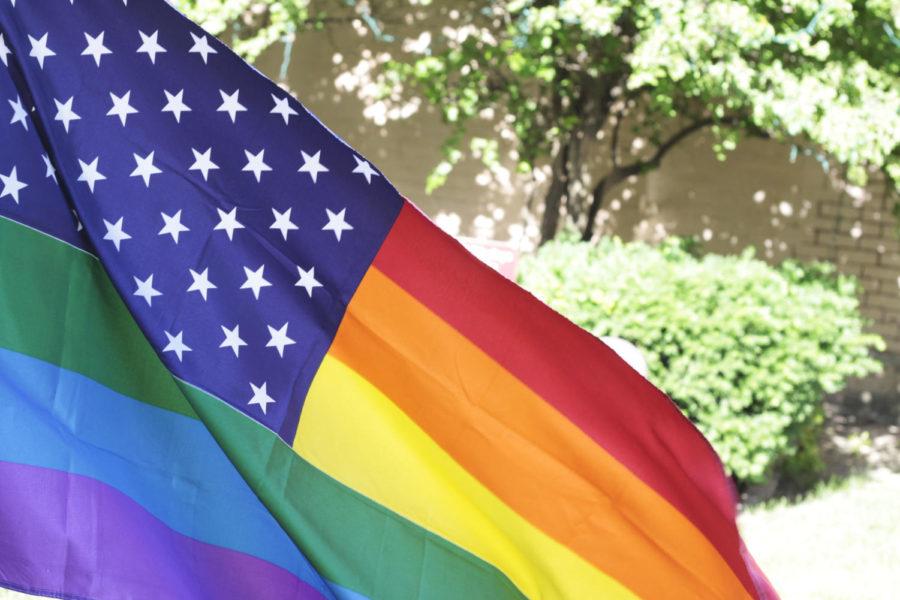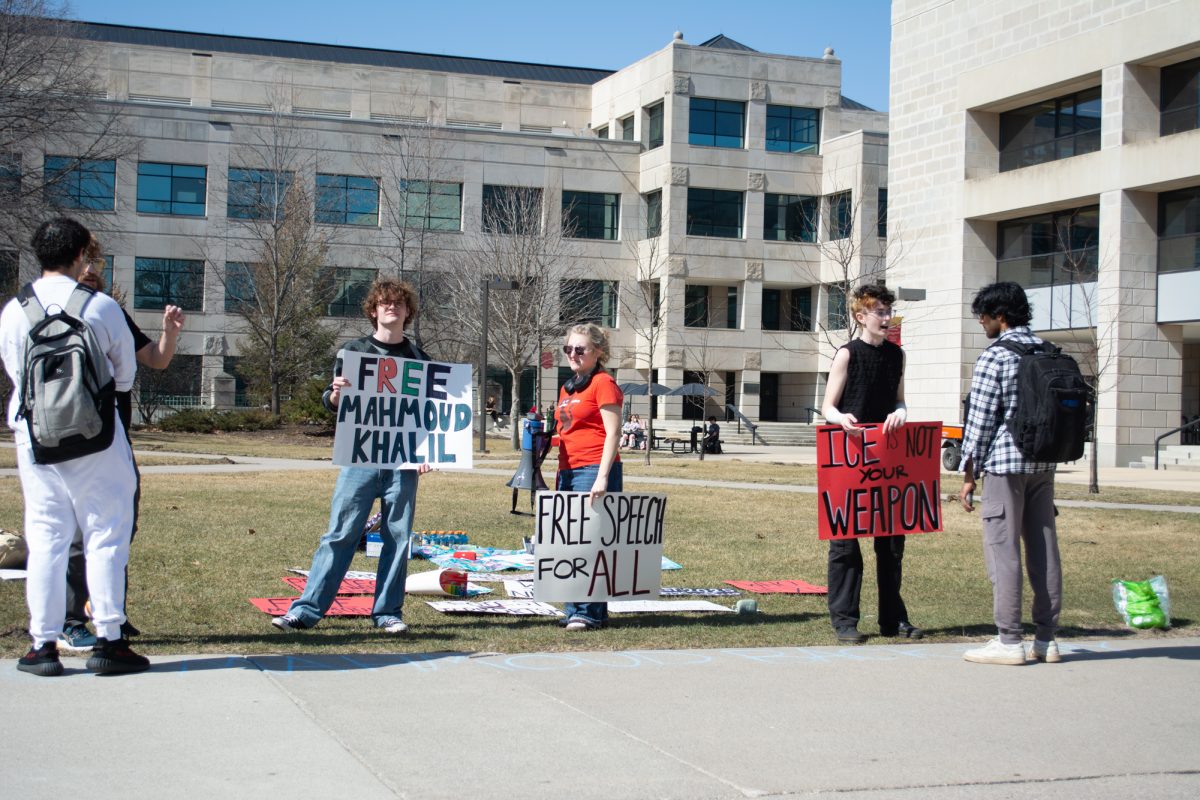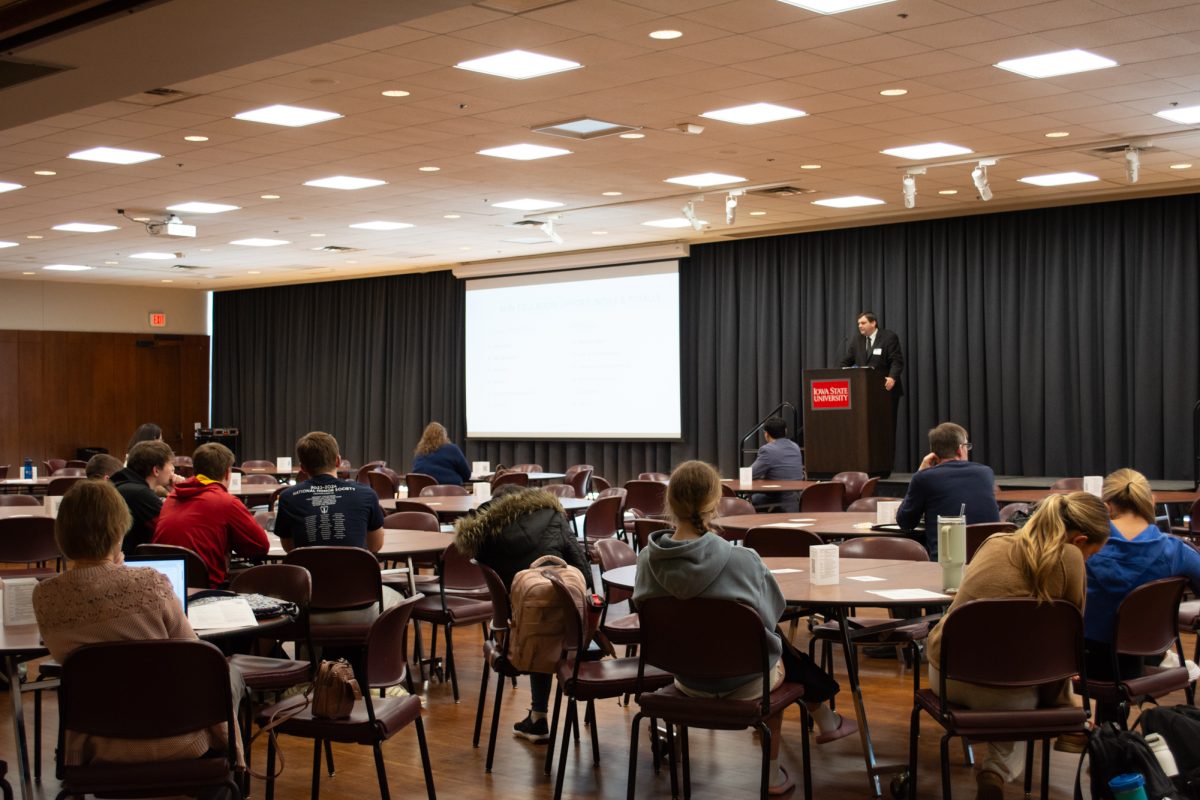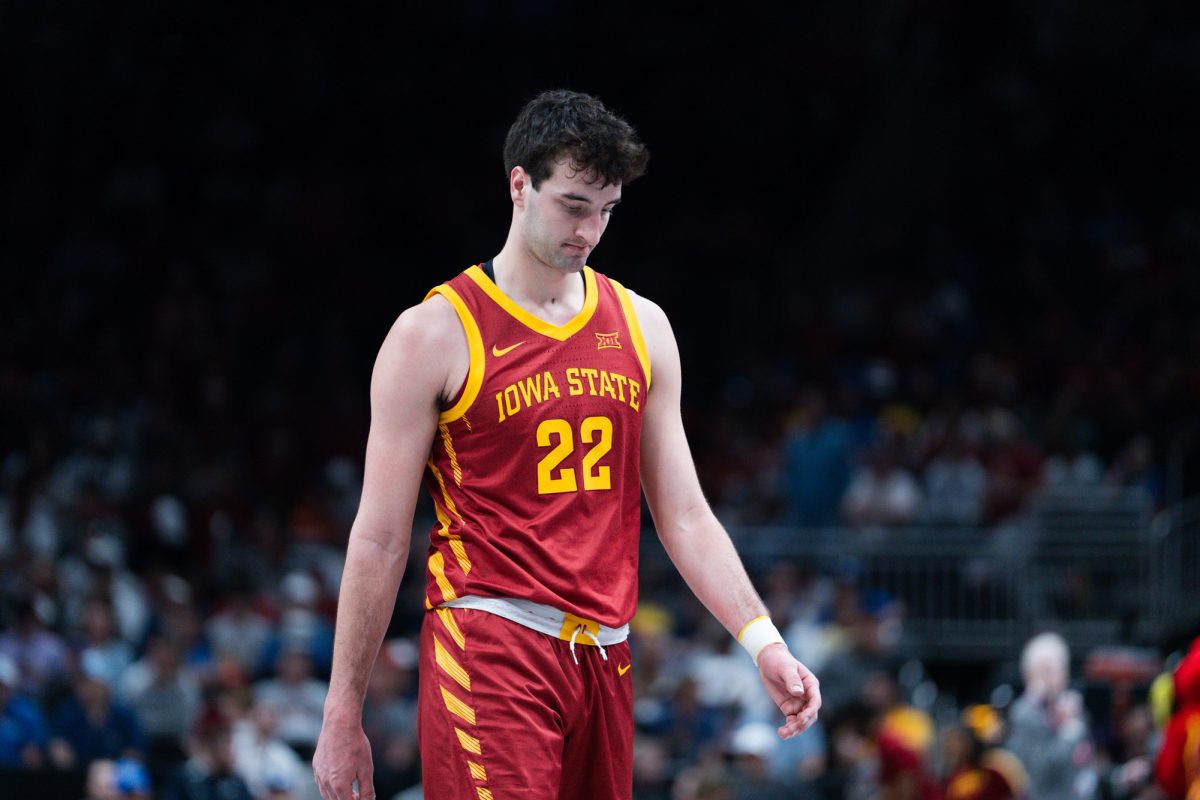Sexual misconduct statistics higher for those in LGBTQ community
The rainbow flag was flown in honor of the LGBT movement as the Defense of Marriage Act was overturned June 26, 2013, after the Supreme Court declared that it was unconstitutional.
October 12, 2015
Sexual assault has been on the minds of many on campus after the release of the Campus Climate Survey, and the results in regards to the LGBTQ community are somewhat abnormal.
The conversation surrounding sexual assault has rarely touched on the significantly high rate of sexual misconduct in the LGBTQ community at Iowa State as noted by the Sexual Assault Climate Survey released in September.
The amount of non-heterosexual female respondents who experienced nonconsensual sexual contact involving physical force or incapacitation was 32.3 percent, nearly twice the rate of heterosexual females. Non-heterosexual respondents also said they experienced nonconsensual penetration or sexual touching involving physical force or incapacitation at a rate of 20.8 percent, compared to 8.8 percent for heterosexual students.
Respondents who identified as transgender, genderqueer or nonconforming, questioning or not listed (TGQN) were victims of harassment and stalking at notably higher levels, and the offender was a stranger more often than with other demographics according to the survey.
“That has to be part of the conversation, because the difference in that group that they call the TGQN group, it stood out… and the group that they lumped together as the [non-heterosexual group] so they naturally need to be part of the conversation,” said Robinette Kelley, Director of the Equal Opportunity Office.
Kelley also noted that ISU administrators plan to begin meeting soon to collectively look at the results of the survey to see where the university can improve. As the conversations continue, they plan to bring in other groups to address specific concerns.
Nautalia Black, of Advance Services Inc. and an ISU alumni, said she was not surprised at all that the reports of sexual misconduct were higher in the LGBTQ community.
Brad Freihoefer, LGBTQ Student Services Program Coordinator, said the survey results appear to reflect national data.
Non-heterosexual respondents also experienced nonconsensual penetration or sexual touching involving absence of affirmative consent at significantly higher rates than heterosexual respondents.
Kelley said, while the intended definition of affirmative consent is a “yes” from both parties, the respondents may have had a different definition in mind. This lack of a clear definition among students is another problem the administration is addressing the issue.
Freihoefer said he is glad the report included TGQN and non-heterosexual students because it allows underrepresented students to have a voice and share some of what they are experiencing in relation to the very important issue of sexual assault and violence.
“The data is incredibly helpful and neat and necessary, but we also have to make sure that we focus…we have survivors navigating difficult and challenging scenarios,” Freihoefer said.
He wants LGBT Student Services and other on campus resources, which are available at http://www.sexualmisconduct.dso.iastate.edu/, to be a place where students feel comfortable coming to talk about any of their concerns.
Only 45 respondents identified as TGQN, so the report concluded that the results had too large of a standard error or had to be suppressed in most cases.
However, the report does state that TGQN individuals are notably more worried about retaliation and are less confident that they will receive support from other students and campus officials if they were to report sexual assault or harassment.
“We know reporting is low,” Freihoefer said, “Especially for a variety of different non-dominant identities in Ames or at Iowa State. LGBTQ students would be among those where we would assume reporting would be lower for a variety of systematic and historic reasons, and current reasons.”
Kelley said sexual assault reports are confidential, but the university can certainly do a better job to address fears of retaliation.
“If people are talking about it, or people are getting their story straight, or saying, ‘Don’t you remember this’… That impacts the integrity of any investigation that we’re doing, and it also breeds retaliatory acts,” Kelley said.
Alex Peters, Vice president of the LGBT Ally Alliance, believes the increased fear of reporting might be tied to the tight-knit nature of the LGBT community. He feels that most of the gay men in Ames know each other, which can lead to decreased anonymity if someone were to file a report.
The university takes retaliation very seriously and any perceived retaliatory acts should be reported to the administration immediately Kelley said. Iowa State can make classroom and housing changes, and provide a no-contact order to the accused.
“If you report it, there are definite things we can do, both to keep you safe and to stop it,” Kelley said.
“I’m interested in seeing where the university goes from here,” said Nicci Port, administrative specialist in the College of Human Sciences.
She said having the information on LGBTQ students in the report can serve as a call to action for those with the ability to make changes to how sexual misconduct is addressed on campus.
“It’s just important to realize that the numbers are important, but the human experience and caring for that human experience is first and foremost, and making sure we’re providing support there for students navigating sexual misconduct and domestic violence,” Freihoefer said.







